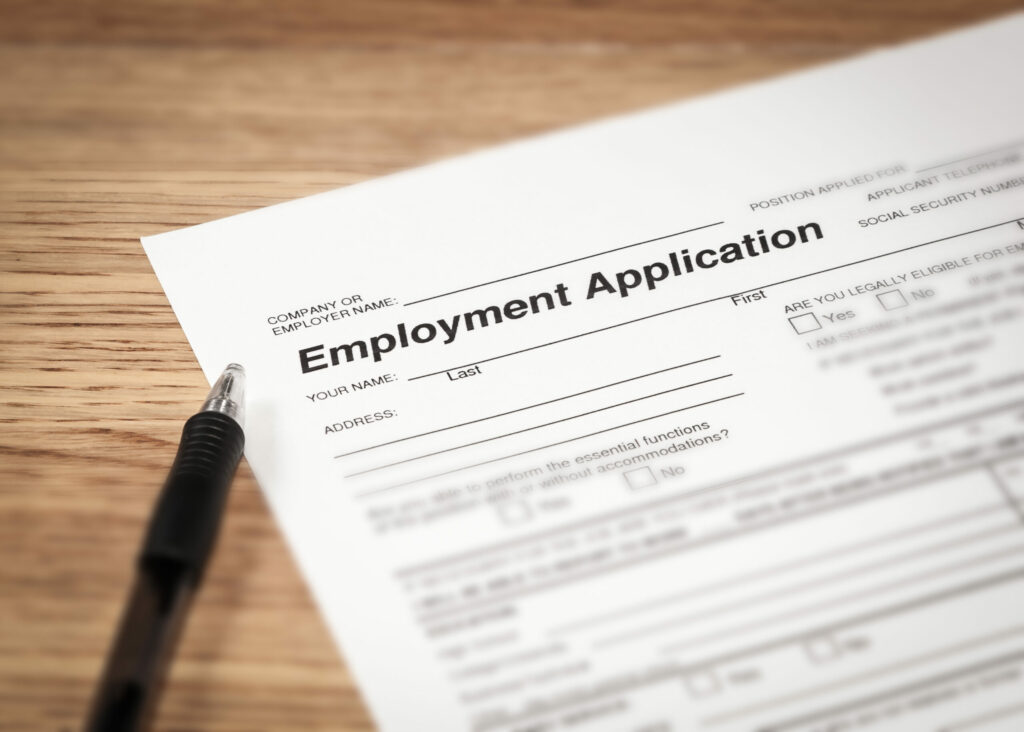[vc_row][vc_column][vc_column_text]As most employers already know, Illinois has what is generally known as a “ban-the-box” law, which went into effect January 1, 2015. Ban-the-box laws are designed to help ex-offenders with a prior criminal record find opportunities to land jobs. In a nutshell, the Act prohibits employers from considering or even asking about a job applicant’s criminal record or history until after the employer has evaluated the applicant, decided the person is qualified for the position, and notified the applicant of an impending interview. If the employer does not conduct interviews as part of the hiring process for the position, then it must make a conditional offer of employment before inquiring into the applicant’s criminal record or history.
The ban-the-box law was amended (Senate Bill 1480) effective March 23, 2021. Now, if an employer relies on a conviction record to not hire or terminate an employee, there is a required two-stage notice process. First, the employer must send the applicant or employee a written notification of the “preliminary” decision that contains the following information:
- Notice of the disqualifying conviction and the employer’s reason for the disqualification;
- A copy of the conviction report, if any; and
- An explanation of the individual’s right to respond before the decision becomes final.
The applicant or employee then has five (5) business days following the preliminary notice described above to respond and provide evidence challenging the accuracy of the conviction record or evidence of mitigation, such as rehabilitation. Employers must consider any information submitted by the individual prior to making a final employment decision. If the employer proceeds with a final decision to take an adverse action (like termination or rescinding a job/interview offer) solely or in part because of the individual’s conviction record, employers are required to send the individual a second written notification of the final decision that contains the following information:
- Notice of the disqualifying conviction(s) and the employer’s reasoning of the disqualification;
- Any existing procedure the employer has for the individual to challenge the decision or request reconsideration; and
- The right to file a charge with the Illinois Department of Human Rights.
What does the ban-the-box amendment mean for employers? Here are some actions employers should take in response to the new law. First, review and consider whether you need to revise your current criminal background check policies. Second, train all staff involved in human resources functions on this new law. Third, if you utilize outside recruiters or other entities who are involved in your background checks, hiring and termination processes, ensure they too comply with the law.
Ban-the-box laws are likely to evolve as states look for ways to help ex-offenders find work and create consistency across the nation.[/vc_column_text][vc_separator][/vc_column][/vc_row][vc_row][vc_column width=”1/4″][vc_single_image image=”8161″ alignment=”right”][/vc_column][vc_column width=”3/4″][vc_column_text]Troy Haggestad serves as President of WilliamsMcCarthy LLP and has spent his entire career assisting clients with significant employment matters exclusively on behalf of management. He can be reached at 815-987-8977 or thaggestad@wilmac.com.[/vc_column_text][/vc_column][/vc_row][vc_row][vc_column][/vc_column][/vc_row]





